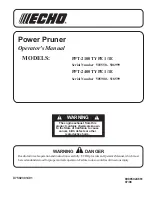
■
32
│
GB
│
MT
PAAS 12 A1
Operation
Switching on and off
Switching on:
♦
Press the safety lock-out .
♦
Press the ON/OFF switch .
Switching off:
♦
Release the ON/OFF switch .
Sawing methods
A) Working without the grip bracket (see fig. E):
■
For branches of a larger diameter or wood,
plastic or building material, work without the
grip bracket . The workpiece must be right
up against the base plate. Use a rocking cutting
motion for round workpieces.
A1) Sawing flush:
■
Flexible saw blades allow you to saw off pro-
truding workpieces such as pipes located close
to the wall, provided the saw blade is long
enough.
1. Place the saw blade directly against the wall.
2. Bend it by applying lateral pressure to the recip-
rocating saw so that the base plate comes
into contact with the wall.
3. Switch the appliance on as described and saw
off the workpiece by applying constant pressure.
A2) Plunge cutting (see fig. F):
CAUTION! RISK OF KICKBACK!
►
Plunge cuts may only be made in soft materials
(wood or similar).
1. Place the reciprocating saw with the lower edge
of the base plate on the workpiece. Switch
the appliance on.
2. Tilt the reciprocating saw forwards and plunge
the saw blade into the workpiece.
3. Position the reciprocating saw vertically and
continue sawing along the cutting line.
B) Working with the grip bracket (see fig. G):
♦
Push down lightly and move the saw downwards.
Maintenance and cleaning
WARNING! RISK OF INJURY! Always
switch the appliance off and remove
the battery before carrying out any
work on the appliance.
■
Always remove the saw blade before carry-
ing out any work on the power tool.
■
Keep the appliance and ventilation slits clean at
all times. If the ventilation slits are blocked, there
is a risk of overheating and/or the appliance
being damaged.
■
Always clean the appliance after completion
of work.
■
Do not allow any liquids to get into the appli-
ance. Use a cloth to clean the housing. Never
use petrol, solvents or cleansers which can
damage plastic.
■
Clean the saw blade mount, if necessary with a
brush or by blowing it out with compressed air.
■
If a lithium-ion battery is to be stored for an
extended period, the charge level should be
checked regularly. The optimum charge level is
between 50% and 80%. The optimum storage
climate is cool and dry.
















































